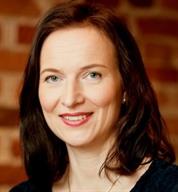Paula Fontell FRSA is a co-founder of Ethica Ltd, a Finland based consultancy specialising in the Circular Economy. The circular economy needs a social vision. Although a great deal of positive change is happening and driving us towards the more circular future, to the majority of people it is still a buzz word or merely a synonym for recycling.
In Finland, the discussion around circular economy has long centred on industrial symbiosis, i.e. an industrial ecosystem where unused or residual resources of one company are used by another, which is understandably appealing to companies who are struggling with the difficult economic situation, and are searching for ways to improve their competitiveness. This is extremely important, but does not yet change the economic model. Also, the social implications and opportunities of circular economy largely still remain unanswered.
The forerunner companies have started taking a more design driven approach to answer the challenges of the changing business environment, and to grasp the opportunities it offers. That is the only way to drive real change from the current linear economic model towards a new economy that is “restorative and regenerative by design” according to the Ellen MacArthur Foundation.
The strong design centric approach of the RSA’s Great Recovery programme offers many good case studies and resources on how design has to change and what that means for companies, for instance, in terms of competence and collaboration. The RSA report “Investigating the role of design in the circular economy” opens up the cross-disciplinary design approach that is fundamental, instead of viewing the circular economy as a resource management issue. The report gave a good starting point for our work, to understand who needs to be involved, what the crucial processes are, and most importantly, the people and competences needed for a successful circular economy development programme. We have used the knowledge, for example, for the planning of our on-going Relooping Fashion initiative.
The work of the RSA and RSA Fellows offers an intellectual, yet pragmatic knowledge platform that certainly speeds up the development towards the 21st century enlightenment. In fact, I believe it is the vision and mission of the 21st century enlightenment that makes the work of the RSA community so special. At Ethica, my business partner Anne Raudaskoski, FRSA, describes the vision of a Circular Economy with the picture of the Elysian Fields. Yes, I know, the “Land of perfect happiness at the end of the earth” might be a high ideal, but to overcome the challenges we are facing and the attitudes and structures cemented in the current linear business logic - you surely can use a vision that is far stronger and brighter.
Talking about the Elysian Fields, we want to highlight also the opportunities for social advancement in a Circular Economy, in addition to the more evident material and economic viewpoints and opportunities.
People and companies who want to create more sustainable products and services finally start having realistic opportunities to do so in a bigger scale, and have tools to start gathering inspired collaborative communities around those ideas. Our Design for Circularity approach, for example, encourages organisations to consider the principles of genuine shared value creation in their product, service and business model design. For us, the concept ‘circular design’ also refers to social equity and well-being, which must be addressed as part of the design process. Otherwise one cannot talk about creating a restorative impact. It is almost visible how consciousness and empowerment increase and pave the way to new value based business practices. That makes a circular economy a real golden opportunity to advance not only ecologically more sustainable, but also economically and socially more inclusive and just business and society.
The fundamental business logic has to change, and that requires open, constructive debate and dialogue; public discussion that organisations like RSA are able to facilitate. We also hope that the RSA would take even a stronger coordinating and enabling role, and would act as a platform for mobilising global collaborative development initiatives. We are truly happy to be the fellows of this remarkable organisation, and welcome many more insightful discussions and joint ventures to come.
Related articles
-
What can we learn from Fellows in Southeast Asia
Lauren Orso
In March and April 2019, the RSA's global team will be visiting Singapore, Bangkok and Kuala Lumpur on the hunt for social innovations and exploring potential for an action-oriented Fellows network.


Be the first to write a comment
Comments
Please login to post a comment or reply
Don't have an account? Click here to register.